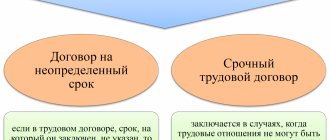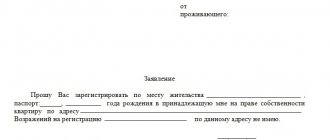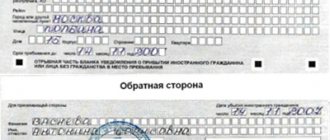Last updated March 2021
Despite all the apparent severity of the legislation towards criminals, sentences are often passed in which judges impose a suspended sentence. That is, the convicted person is obliged to serve not exactly a sentence, but to “endure” some inconveniences, which should put the erring citizen “on the right path” while waiting for the end of the probationary period. But no matter how much the state meets people who show hope for reform without prison, a suspended sentence is a criminal record with its reduced consequences.
What is a suspended sentence?
If a number of conditions are met , which will be discussed below, the punishment assigned to the perpetrator may become suspended. The court has the right, in a verdict of guilty, to assign to the defendant the type of punishment (what specific punishment he must suffer), its amount (how long he must serve the sentence), but consider it conditional.
The punishment is not actually carried out , but the convicted person is assigned duties, the fulfillment of which will help him prove that he has reformed.
The court determines a period, called probation, during which someone found guilty of a crime must comply with certain conditions and perform duties listed in the sentence. If they are executed properly, the punishment will not be carried out.
Having a criminal record means that a conviction has been made against a person; he has a criminal record from the date the sentence comes into force until the date the criminal record is expunged or expunged.
A suspended conviction will affect the punishment if a person commits a crime again, and also carries a number of “inconvenient” consequences, for example, in the form of the inability to carry out work in some areas. With the removal or expungement of a criminal record, all its consequences are neutralized.
Term of punishment
With real punishment, the time frame within which a criminal record is expunged depends on what punishment is imposed and is calculated only from the date of its execution. With a suspended sentence, the criminal record is expunged along with the completion of the probationary period.
The probationary period is established:
- from six months to 3 years , with punishment of imprisonment of up to 1 year or less severe;
- from 6 months to 5 years , if a prison sentence of more than 12 months is imposed.
It is counted from the entry into force of the sentence, and includes the period from the date the sentence was announced.
Types of punishments that can be suspended
The punishment may be suspended if the citizen is assigned:
- Correctional work.
- Imprisonment for up to 8 years.
The court has the right to assign a suspended sentence to a specific defendant, but is not obliged. In order for the sentence to be suspended, in addition to compliance with the conditions, the court must be convinced that the offender can reform without execution of the punishment.
This means that the evidence presented, characteristics, documents, behavior of the defendant during the pre-trial investigation, court hearing and other circumstances led the court to this conclusion.
Conditionally serving military personnel may also serve a service restriction, as well as detention in a disciplinary military unit.
Other types of punishments established by the Criminal Code can only be real.
In what cases can a suspended sentence be imposed?
My question is this. My young man is being held in a pre-trial detention center until trial under Part 3 of Art. 162 of the Criminal Code of the Russian Federation. This is his first conviction and he is not an organizer. Is a suspended sentence possible?
Lawyer Lebedev Z.S.
Good afternoon According to Part 3 of Article 162 of the Criminal Code, robbery committed with illegal entry into a home, premises or other storage facility or on a large scale is punishable by imprisonment for a term of seven to twelve years with a fine of up to one million rubles or in the amount wages or other income of a convicted person for a period of up to five years or without it and with restriction of freedom for a period of up to two years or without it. According to Article 73 of the Criminal Code, if, having imposed correctional labor, restrictions on military service, detention in a disciplinary military unit or imprisonment for a term of up to eight years, the court comes to the conclusion that it is possible to correct the convicted person without actually serving the sentence, it decides to consider the imposed punishment conditional. A suspended sentence is not assigned to: a) those convicted of crimes against the sexual integrity of minors under fourteen years of age; a.1) convicted for crimes provided for in parts one and two of Article 205.1, Article 205.2, part two of Article 205.4, parts one to three of Article 206, Article 360 of this Code; b) when committing a serious or especially serious crime during the probationary period, with a conditional sentence imposed for committing an intentional crime, or during the unserved part of the sentence imposed for committing an intentional crime, with conditional early release. When assigning a suspended sentence, the court takes into account the nature and degree of social danger of the crime committed, the identity of the perpetrator, including mitigating and aggravating circumstances. When assigning a suspended sentence, the court sets a probationary period during which the suspended sentenced person must prove his correction by his behavior. In case of imposition of imprisonment for a term of up to one year or a more lenient type of punishment, the probationary period must be no less than six months and no more than three years, and in case of imposition of imprisonment for a term of more than one year - no less than six months and no more than five years . The probationary period is calculated from the moment the sentence enters into legal force. The probationary period includes the time elapsed from the date of pronouncement of the sentence. If a sentence is imposed in the form of detention in a disciplinary military unit, the conditional probationary period is established within the limits of the remaining period of military service on the day the verdict is announced. With a suspended sentence, additional types of punishment may also be imposed. The court, when assigning a suspended sentence, imposes on the suspended sentenced person, taking into account his age, ability to work and state of health, the performance of certain duties: not to change his permanent place of residence, work, study without notifying the specialized government body that monitors the behavior of the suspended sentenced person, not to visit certain places, undergo treatment for alcoholism, drug addiction, substance abuse or a sexually transmitted disease, work (get a job) or continue studying in a general education organization. The court may impose on the conditionally convicted person the performance of other duties that contribute to his correction. Control over the behavior of a conditionally convicted person is carried out by an authorized specialized state body, and in relation to military personnel - by the command of military units and institutions. During the probationary period, the court, on the proposal of the body monitoring the behavior of the conditionally convicted person, may cancel in whole or in part or supplement the duties previously established for the conditionally convicted person. According to Articles 61 and 62 of the Criminal Code, the following are recognized as mitigating circumstances: a) the commission of a crime of minor or moderate gravity for the first time due to a random combination of circumstances; b) the minority of the perpetrator; c) pregnancy; d) the presence of young children with the perpetrator; e) committing a crime due to a combination of difficult life circumstances or out of compassion; f) committing a crime as a result of physical or mental coercion or due to financial, official or other dependence; g) commission of a crime in violation of the conditions of legality of necessary defense, detention of the person who committed the crime, extreme necessity, justified risk, execution of an order or instruction; h) illegality or immorality of the behavior of the victim, which was the reason for the crime; i) confession, active assistance in solving and investigating a crime, exposing and prosecuting other accomplices in a crime, searching for property obtained as a result of a crime; j) provision of medical and other assistance to the victim immediately after the commission of a crime, voluntary compensation for property damage and moral harm caused as a result of the crime, and other actions aimed at making amends for the harm caused to the victim. When assigning a punishment, circumstances not provided for in the first part of this article may be taken into account as mitigating factors. If a mitigating circumstance is provided for by the relevant article of the Special Part of this Code as a sign of a crime, it in itself cannot be taken into account again when assigning punishment. In the absence of aggravating circumstances, the term or amount of punishment cannot exceed two-thirds of the maximum term or amount of the most severe type of punishment provided for by the relevant article of the Special Part of this Code. In the case of concluding a pre-trial agreement on cooperation in the presence of mitigating circumstances provided for in paragraph “and” of part one of Article 61 of this Code, and in the absence of aggravating circumstances, the term or amount of punishment cannot exceed half the maximum term or amount of the most severe type of punishment provided for in the relevant article of the Special Part of this Code. The provisions of part one of this article do not apply if the corresponding article of the Special Part of this Code provides for life imprisonment or the death penalty. In this case, the punishment is imposed within the sanction of the relevant article of the Special Part of this Code. In the case of concluding a pre-trial agreement on cooperation, if the relevant article of the Special Part of this Code provides for life imprisonment or the death penalty, these types of punishment are not applied. In this case, the term or amount of punishment cannot exceed two-thirds of the maximum term or amount of the most severe type of punishment in the form of imprisonment, provided for by the relevant article of the Special Part of this Code. The term or amount of punishment imposed on a person in respect of whom a criminal case is considered in the manner prescribed by Chapter 40 of the Criminal Procedure Code of the Russian Federation cannot exceed two-thirds of the maximum term or amount of the most severe type of punishment provided for the crime committed, and in the case, specified in Article 226.9 of the Criminal Procedure Code of the Russian Federation - one-half of the maximum term or amount of the most severe type of punishment provided for the crime committed. According to Articles 61, 62, 64 of the Criminal Code, the following are recognized as mitigating circumstances: a) the commission of a crime of minor or moderate gravity for the first time due to a random combination of circumstances; b) the minority of the perpetrator; c) pregnancy; d) the presence of young children with the perpetrator; e) committing a crime due to a combination of difficult life circumstances or out of compassion; f) committing a crime as a result of physical or mental coercion or due to financial, official or other dependence; g) commission of a crime in violation of the conditions of legality of necessary defense, detention of the person who committed the crime, extreme necessity, justified risk, execution of an order or instruction; h) illegality or immorality of the behavior of the victim, which was the reason for the crime; i) confession, active assistance in solving and investigating a crime, exposing and prosecuting other accomplices in a crime, searching for property obtained as a result of a crime; j) provision of medical and other assistance to the victim immediately after the commission of a crime, voluntary compensation for property damage and moral harm caused as a result of the crime, and other actions aimed at making amends for the harm caused to the victim. When assigning a punishment, circumstances not provided for in the first part of this article may be taken into account as mitigating factors. If a mitigating circumstance is provided for by the relevant article of the Special Part of this Code as a sign of a crime, it in itself cannot be taken into account again when assigning punishment. In the presence of mitigating circumstances provided for in paragraphs “and” and (or) “k” of part one of Article 61 of this Code, and in the absence of aggravating circumstances, the term or amount of punishment cannot exceed two-thirds of the maximum term or amount of the most severe type of punishment provided for in the relevant article of the Special parts of this Code. In the case of concluding a pre-trial agreement on cooperation in the presence of mitigating circumstances provided for in paragraph “and” of part one of Article 61 of this Code, and in the absence of aggravating circumstances, the term or amount of punishment cannot exceed half the maximum term or amount of the most severe type of punishment provided for in the relevant article of the Special Part of this Code. The provisions of part one of this article do not apply if the corresponding article of the Special Part of this Code provides for life imprisonment or the death penalty. In this case, the punishment is imposed within the sanction of the relevant article of the Special Part of this Code. In the case of concluding a pre-trial agreement on cooperation, if the relevant article of the Special Part of this Code provides for life imprisonment or the death penalty, these types of punishment are not applied. In this case, the term or amount of punishment cannot exceed two-thirds of the maximum term or amount of the most severe type of punishment in the form of imprisonment, provided for by the relevant article of the Special Part of this Code. The term or amount of punishment imposed on a person in respect of whom a criminal case is considered in the manner prescribed by Chapter 40 of the Criminal Procedure Code of the Russian Federation cannot exceed two-thirds of the maximum term or amount of the most severe type of punishment provided for the crime committed, and in the case, specified in Article 226.9 of the Criminal Procedure Code of the Russian Federation - one-half of the maximum term or amount of the most severe type of punishment provided for the crime committed. In the presence of exceptional circumstances related to the goals and motives of the crime, the role of the perpetrator, his behavior during or after the commission of the crime, and other circumstances that significantly reduce the degree of public danger of the crime, as well as with the active assistance of a participant in a group crime in solving this crime, a punishment may be imposed below the lower limit provided for by the relevant article of the Special Part of this Code, or the court may impose a more lenient type of punishment than provided for by this article, or not apply an additional type of punishment provided for as mandatory. Both individual mitigating circumstances and a combination of such circumstances may be considered exceptional. Guilty of committing crimes provided for in Articles 205, 205.1, 205.2, 205.3, 205.4, 205.5, parts three and four of Article 206, part four of Article 211, Article 361 of this Code, or guilty of committing crimes related to terrorist activities provided for in Articles 277 , 278, 279 and 360 of this Code, a punishment cannot be imposed below the lower limit provided for by these articles, or a more lenient type of punishment than that provided for in the relevant article cannot be imposed, or an additional type of punishment provided for as mandatory cannot be applied. Thus, assigning a person a conditional sentence is possible if the person is given a sentence not exceeding 8 years of imprisonment, including a punishment below the minimum prescribed for this crime. When assigning a suspended sentence, the court must make sure that the correction of the convicted person is possible without isolation from society.
Sincerely, lawyer Zakhar Lebedev, partner of the law firm Antonov and Partners.
Still have questions for your lawyer? Ask them right now here, or call us by phone in Moscow +7 (499) 288-34-32 or in Samara +7 (846) 212-99-71 (24 hours a day), or come to our office for a consultation (by pre-registration)!
Conditions of probation
A suspended sentence cannot be applied if the convicted person has been charged with the following crimes:
- Violating the sexual integrity of persons under 14 years of age.
- Related to terrorist activities.
- Hostage taking.
- Attacks against internationally protected persons or institutions.
The law prohibits a suspended sentence when the defendant reoffends and has previously been convicted, under the following conditions:
- if the new crime is serious (the most severe punishment is not more than 10 years in prison);
- especially grave (the sanction of the article establishes the maximum punishment of more than 10 years in prison);
- if the defendant committed it during the probationary period when convicted of another intentional crime or during parole during the unserved part of the sentence;
- if he is a dangerous or especially dangerous repeat offender.
Probation for murder. Truth or myth?
Murder, that is, intentionally causing the death of another person, is one of the most serious offenses in the Russian Criminal Code. Article 105 of the Criminal Code of the Russian Federation provides for very severe punishment, up to life imprisonment.
In our article today we will tell you whether it is realistic to receive a suspended sentence for murder, and we will also try to debunk some myths in this regard.
To answer the question posed, we will turn to the most authoritative source - the Criminal Code of Russia.
Article 73 of the Criminal Code of the Russian Federation states that a conditional sentence can be applied to those persons who are sentenced to imprisonment for a term of up to 8 years if the court comes to the conclusion that it is possible to correct the convicted person without actually serving the sentence. At the same time, the defendant must not have a dangerous or especially dangerous recidivism, and also not be on probation for a previous conviction.
Part 1 of Article 105 of the Criminal Code of the Russian Federation (murder without qualifying criteria) provides for a punishment of 6 to 15 years in prison.
Thus, we can come to the conclusion that there are formal grounds for a suspended sentence for murder. Theoretically, this could happen if the court orders under Part 1 of Art. 105 of the Criminal Code of the Russian Federation imprisonment for up to 8 years.
But theory is one thing, and practice is quite another, which indicates that a suspended sentence for murder is extremely rarely given, even if the main term does not exceed 8 years. The reason for this approach is very simple - murder is considered one of the most socially dangerous acts, and if the courts give a “condition” under this article, society simply will not understand them.
Situations where some chance of probation does arise include the following:
— Charge of attempted murder (part 3 of article 30 and part 1 of article 105 of the Criminal Code of the Russian Federation). In this case, the court may take into account certain circumstances, including the age of the defendant and his state of health. Despite the fact that courts almost always give a real sentence for attempted murder, suspended sentences under this article are found in judicial practice.
— The defendant has a serious incurable disease or injury that makes it impossible to serve his sentence in prison.
As for the possibility of a suspended sentence under Part 2 of Art. 105 of the Criminal Code of the Russian Federation, this is impossible, because, according to the sanction of this article, the minimum sentence is 8 years of imprisonment.
Now let’s talk about the myths and stereotypes that exist in society, which are often fueled by legally illiterate headlines in the tabloid press. We are talking about cases where courts impose fairly lenient punishment on citizens accused of committing crimes that resulted in death by negligence and some other situations. We are talking about such articles of the criminal code as 107 of the Criminal Code of the Russian Federation (murder in a state of passion), 108 of the Criminal Code of the Russian Federation (murder when exceeding the limits of necessary defense), 109 of the Criminal Code of the Russian Federation (causing death by negligence) and some others.
These crimes are fundamentally different from murder (Article 105 of the Criminal Code of the Russian Federation), since here the death of another person is caused either unintentionally or as a result of the use of inadequate methods of defense against attack. Accordingly, the sanctions of these articles are much softer than those of the article on ordinary murder.
Despite this, journalists quite often, without understanding the legal nuances, print headlines in their publications like “The killer received a suspended sentence,” thereby creating a misunderstanding of the situation among ordinary people.
Still have questions? Ask them to our lawyers:
Responsibilities under probation
Deciding to consider the punishment suspended, the court determines the duties and restrictions that the convicted person must approximately fulfill in order to thereby demonstrate his correction:
- not change your place of residence, work or study without notifying the specialized authority;
- do not visit the places specified in the sentence, for example, drinking establishments;
- receive treatment for alcohol addiction, drug addiction, substance abuse, or a sexually transmitted disease;
- continue to work/get a job or continue studying.
This list is not exhaustive. If the court decides that some other obligation can contribute to correction, it has the right to indicate it in the verdict. For example, the court almost always imposes an obligation to report to a specialized body - once, twice or more a month.
Where, how and when to register and report for probation
The law defines the body that monitors the behavior of a suspended prisoner - this is the penal inspection , or briefly - the penal inspectorate .
From the moment the verdict is announced, the 10-day countdown begins for appealing it, after which the verdict comes into legal force. After this, the court was given three days to carry out the sentence.
That is, if a suspended sentence is imposed, a court employee within this period sends a copy of the sentence to the correctional institute in the area of residence of the convicted person for its execution. The day the sentence is received by the penal inspection is the date the convicted person is registered.
After the verdict is received, an inspector responsible for working with the probationer is appointed, who must call him to conduct a first conversation.
You must show up when called with identification documents. All other documents that must be carried with you must be indicated in the notice of appearance sent to the convicted person. The date of appearance is a maximum of 10 days from registration.
At your first meeting with the inspector:
- Documents are being checked.
- Fingerprinting is carried out.
- Other information is being revealed.
- The rights and obligations of the convicted person are explained.
- The frequency of appearance and its days are determined, if such an obligation is specified in the sentence.
At the end of the conversation, the conditionally convicted person is asked to sign an explanation of his rights and obligations, and is also given a memo. If the court has ordered treatment, a referral to the appropriate medical institution is issued.
During the probationary period, the inspector of the penal inspection periodically checks the fulfillment of the duties of the probationer. Checks are carried out at the place of residence, place of work or study, and in various public places. Once every 3 months they are held together with the police.
○ Advice from a lawyer:
✔ Several years ago I was brought to criminal liability, but was not convicted, could there be problems with employment?
If you have not been convicted, then there is no data about you in the GIAC system of the Russian Federation. You don't have to worry about finding a job.
✔ One of my relatives is serving time for a criminal offense, could this be an obstacle for me to enter the FSB or Ministry of Internal Affairs academy?
Yes, but not necessarily. The issue is resolved individually:
“If, as a result of checking the accuracy of the information provided by the candidate, data on whether the candidate’s relatives have a criminal record, the decision in each specific case is made individually by the manager (supervisor) authorized to make a decision on the documents, taking into account the severity of the crime committed, the degree of relationship, relationships and frequency of communication, material or other dependence of the candidate, the nature of the upcoming service in the internal affairs bodies" (clause 41 of Order of the Ministry of Internal Affairs No. 595).
✔ When applying for a job, I filled out a form and wrote “No” in the column about criminal record. I worked for a year, and the employer found out what I face if my criminal record has long been expunged?
There is no risk if the criminal record is expunged. An exception may be working with children. In addition, when applying for a job, you no longer had a criminal record, so you indicated everything correctly. The reason for dismissal may be the provision of false documents to the employer.
✔ The employer knows about the expunged criminal record and said so in a private conversation. There is a recording of the conversation, what should I do, I need work!
If your criminal record is cleared, there is no need to worry. You can be denied employment only if you are applying for a job in law enforcement or intend to work with children.
In this video you know how to get a job with an expunged criminal record.
Published by: Vadim Kalyuzhny , specialist of the TopYurist.RU portal
Maybe someone will be interested in reading how a suspended sentence works in a medium-sized city and what it is. I’ll try to describe it using my own example:
I won’t name the article, I can only say that it has nothing to do with drugs and has nothing to do with them.
So, let's go: having released the formalities of the investigation, which lasted more than two months, during which I sat at home under an undertaking not to leave, the hour of retribution for the sins of my judgment has come! - “Everyone, stand up, the trial is underway! The case of Razdolbay Razdolbayevich is being considered, in a special order, who has shown himself to be a purely positive person and generally a great guy!” Then there is about 10 minutes of muttering by the judge of inarticulate phrases and the court leaves to make a decision. My article provided for up to 5 years of imprisonment or up to 3 restrictions. They gave me one year of probation with a mandatory appearance at the Criminal Enforcement Inspectorate (hereinafter referred to as the Criminal Enforcement Inspectorate) 1 (one) time a month and not to leave the place of residence without notifying the Inspectorate of the Criminal Inspectorate.
The court issued a copy of the ruling - what next? (By the way, I was tried in one city, and I lived in another, where I chose to serve my suspended sentence). After 10 days from the date of the court ruling, I became interested, and what to do next? I went to surrender to the police department of my district where they politely told me to fuck off, they greeted me politely, listened attentively and sent me home to mind their own business, since they didn’t receive anything from the court and they don’t know me and don’t really want to know me:-“ We’ll definitely call you back, all the best” - hmm, somewhere I’ve already heard this phrase. Well, okay, said and done, we’re waiting for the call.
Replacement with real punishment
The court has the authority to revoke a suspended sentence and order the actual execution of the sentence if:
- systematic bringing to administrative responsibility related to violation of public order;
- facts of non-fulfillment of duties;
- if the convicted person escaped control.
A similar decision may be made if the court previously extended the probationary period due to the convict’s evasion of compensation for damage, and during the extended period he continues to do so.
In any case, when considering petitions, the penal inspectorate, in order to supplement duties, extend the probationary period, cancel the suspended sentence and bring the sentence to actual execution, determines the reasons for the violations.
To avoid negative consequences, they must be significant and recognized as respectful. For example, a valid reason may be illness, hospital stay, etc. The validity of such reasons must be confirmed not only with words, but also, if possible, with documents, for example, a doctor’s certificate, sick leave, etc.
Consequences of committing criminal offenses during probation
If a crime is committed through negligence or intentionally of minor or moderate gravity, the court has the right to decide whether the conviction under the first sentence is suspended in a new sentence. There may be options:
- the suspended sentence remains so and the sentence is carried out independently;
- the suspended sentence is revoked, and part or all of the punishment for the first sentence is added to the punishment for the second crime.
If an intentional grave or especially grave crime is committed, the conditional sentence without options must be revoked, and the punishment must be imposed based on the totality of sentences by adding up the sentences on them in whole or in part.
○ Are the grounds for obtaining a criminal record taken into account?
If a person’s criminal record has been cleared due to rehabilitating circumstances, he cannot be refused employment - this is explicitly stated in all of the regulations listed above.
As for other grounds for prosecution, for some professions they do play a role.
Thus, the following persons cannot work with children:
- Those who have or have had a criminal record, have been subject to criminal prosecution (with the exception of persons against whom criminal prosecution was terminated on rehabilitative grounds) for crimes against life and health, freedom, honor and dignity of the individual (with the exception of illegal hospitalization in a medical organization providing psychiatric care in inpatient settings) conditions, and slander), sexual integrity and sexual freedom of the individual, against family and minors, public health and public morality, the foundations of the constitutional order and state security, peace and security of mankind, as well as against public safety.
- Those who have an unexpunged or outstanding conviction for other intentional grave and especially grave crimes (Article 331 of the Labor Code of the Russian Federation).
Those whose criminal record has not been cleared or expunged and whose crime was committed intentionally cannot work in transport, aviation, the army, or the civil service.
A person with an outstanding or unexpunged criminal record, who has committed a criminal offense in the economic sphere or a crime against the state cannot become an economist.
Persons who have ever had a criminal record will never be able to become law enforcement officers. The grounds for bringing to responsibility do not play a role.









